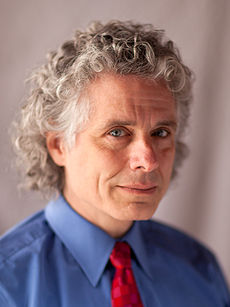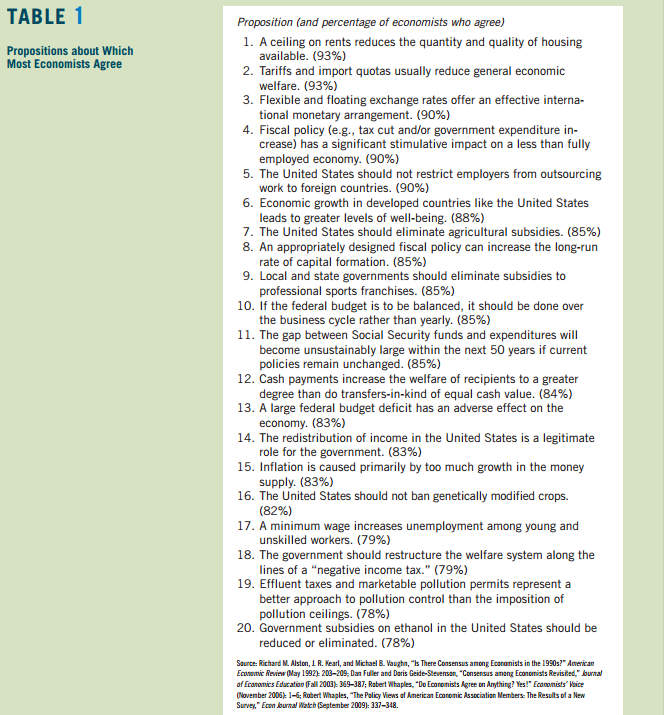Many Mormons live with the hope that their families will be together forever – such hopes are inscribed upon us in primary. We hope to live righteously and faithfully so that we can all make it to the celestial kingdom together. Many, at one point or another, experience the fear that a family member might go astray and forsake the straight and narrow, disqualifying themselves from the celestial kingdom.
What are we supposed to do, how should we react? We endeavor to be all the more devout in regards to our religious practices in hopes that our goodness can somehow affect those we love. Religion, which we had hoped would be the anchor of our family ends up sinking it in storm tossed seas. The bonds in which we had put so much faith have fractured. The grief and pain many feel is beyond comprehension as they try to understand what the consequences will be – will mothers and fathers be forever separated from their children, children their parents, siblings divided from siblings by great gates?
Many have dreamed of the possibility to progress from one kingdom to the next – that if we were not perhaps ready to receive all that we could have received by the end of this life, that we might still have the opportunity to become ready in the hereafter. There are also many who reject the idea out of hand and say it is a heresy and an abomination – though not all who reject this notion do it out of anger. However, it is often the voice which is fueled by outrage and indignation is louder than the voice of quiet hope. Where does this indignation come from?
In Luke chapter 15 we read the story of two brothers and their father. The elder brother in this story becomes angry and bitter when his brother, returning from a riotous (“sinful”) life, is greeted with celebration and festivities.
“And he was angry, and would not go in: therefore came his father out, and entreated him. And he answering said to his father, Lo, these many years do I serve thee, neither transgressed I at any time thy commandment… But as soon as this thy son was come, which hath devoured thy living with harlots, thou hast killed for him the fatted calf. And he said unto him, Son, thou art ever with me, and all that I have is thine.”
The elder brother isn’t as much upset that the prodigal son has come home as he is that he has lived a life of obedience and seems to profit no more from it than his brother who has lived a life of sin. However, what the elder brother does not seem to realize is the pain and suffering which his younger brother, the prodigal son, endured as he gathered experiences from the life style which he had chosen. The older brother was never driven to the point of starvation where he would look on with envy as pigs were given more to eat than he, but rather was constantly a participant in the bounty and love of his father. The older brother did not recognize that suffering is sin’s constant companion however well it may conceal itself; we must not heap more punishment upon those who have already endured pain we know not of. We must ask ourselves who are we most akin to in this story; the younger brother, the elder, or the father? Why do we choose to live the life we do? Is religion a tool to grant us our treasures in heaven or is religion a tool to teach us to have heavenly desires? Do we see righteousness as a way to secure greater accolades or do we hope to weave acts of habitual goodness into our moral tapestry?
Another parable found in Matthew 15 highlights this principle:
So when even was come, the lord of the vineyard saith unto his steward, Call the labourers, and give them their hire, beginning from the last unto the first. And when they came that were hired about the eleventh hour, they received every man a penny. But when the first came, they supposed that they should have received more; and they likewise received every man a penny. And when they had received it, they murmured against the goodman of the house.” The master of the vineyard then responds, “Is it not lawful for me to do what I will with mine own? Is thine eye evil, because I am good?”
The laborers of the Vineyard who had been working all day did not expect more because they thought they deserved more money for their work, but because they believed they deserved more than those who had worked less. They believed themselves to have become more worthy through their works that they might be recipients of the Master’s mercy. They had become so fixated and concerned with their own standing and desires for mercy that they had forgotten how to sympathize and be joyous for others who were also in need of the Master’s mercy – a position that they themselves were in not so long ago. How quick we are to become the servant who was forgiven much but forgave little (Matthew 18:21-35). The question then isn’t if we are able to receive God’s mercy, but if we are changed by His mercy – do we desire an even more abundant out-pouring of mercy for our enemies (for if ye love them which love you, what thank have ye?).
Which of us, when partaking of the sacrament, is truly worthy of that broken body which we remember and that sacred blood which for us was spilt. It isn’t solely the act of taking sacrament which cleanses us, but the desire to partake of the sacrament. Worthiness isn’t a status to achieve or an object to obtain, but rather it is found within the desires of our hearts and soul. Worthiness is found in the desire to repent and to become something heavenly. And though it is said that faith without works is dead, works without faith is equally dead.
C.S Lewis asks a question in his book, The Great Divorce, “Is Judgment not final? Is there really a way out of hell into Heaven? There have been many who have spoken with conviction that there is indeed hope of eternal progression which is only halted by our own desires. J Reuben Clark once said,
“I am not a strict constructionalist, believing that we seal our eternal progress by what we do here. It is my belief that God will save all of His children that he can: and while, if we live unrighteously here, we shall not go to the other side in the same status, so to speak, as those who lived righteously; nevertheless, the unrighteous will have their chance, and in the eons of the eternities that are to follow, they, too, may climb to the destinies to which they who are righteous and serve God, have climbed to those eternities that are to come.” (J. Reuben Clark, Church News, 23 April 1960, p. 3)
President Clark believed that within the eternities and eons of time, progression and change are possible. Joseph Smith believed that a spirit in the lowest kingdom “constantly progresses in spiritual knowledge until safely landed in the Celestial”1 and Brigham Young believed that those who don’t inherit the Celestial Kingdom “would eventually have the privilege of proving themselves worthy and advancing to a celestial kingdom but it would be a slow process”.2
I believe that just as agency is eternal, so is progression; that progression only ceases when desires to progress cease. As long as there is more knowledge to be obtained then possibility to change exists – and that is only made possible through the atonement. President Packer once commented, “I repeat, save for the exception of the very few who defect to perdition, there is no habit, no addiction, no rebellion, no transgression, no apostasy, no crime exempted from the promise of complete forgiveness. That is the promise of the atonement of Christ.” 3
“There are only two kinds of people in the end” says Lewis, “those who say to God, ‘Thy will be done,’ and those to whom God says, in the end, ‘Thy will be done.’” 4 God will not force any in to heaven, that choice is ours. And it isn’t simply a choice of relocation, but a choice of repentance and becoming. As Mormon clearly says in chapter 13, “Do ye suppose that ye could be happy to dwell with that holy Being, when your souls are racked with a consciousness of guilt[?]” This life and this moment now is the best time to truly become disciples of Christ and to weave patterns of righteousness into our own very being. It is here, in the space of faith and doubt allowed to us by the suspension of knowledge through the veil that we are truly able to choose that which we desire to believe and desire to become. God has allowed us the freedom of choice not to test what we will do, but to allow us the freedom to act and believe according to our own beliefs and to learn where those beliefs lead.
———————————————————————————————————–
In case there are questions about the post regarding Elder Bruce R. McConkie’s well known address, I give the following thoughts.
Foremost it is important to recognize this following tidbit of information, “President Kimball was not doctrinaire, and he felt a need to intervene in doctrinal matters only when he saw strong statements of personal opinion as being divisive. Elder McConkie’s talk at BYU on “The Seven Deadly Heresies” implied he had the authority to define heresy. Among other things, he denounces as heretical… the idea of progression from kingdom to kingdom in the afterlife… President Kimball responded to the uproar by calling Elder McConkie in to discuss the talk. As a consequence, Elder McConkie revised the talk for publication so as to clarify that he was stating personal views”. Among with a few other changes, McConkie added to the end of his talk, “every person must choose for himself what he will believe.” [5]
I don’t claim to know McConkie’s thoughts or reasoning behind his conviction of this thought being a heresy – but I’ve come to reconcile his words with another truth. Believing that there is progression in the eternities to come could dissuade many from seeking to emulate the character of Christ in this life. However, if this thought were to be a truth and it served to dissuade us from choosing a life in pursuit of emulating Christ, then our spiritual maturity is much like the elder brother of the prodigal son. If only the fear of not being able to progress in the future and only being able to progress now is what roots us in the Gospel and teachings of Christ, then we have missed the meaning of those teachings entirely. The Gospel isn’t given to us to save us from future pain and misery (though that is a byproduct) but to help us choose now, this day, to become more like our heavenly parents and to know how we can work on accomplishing that goal. Importantly, the gospel isn’t there to incentivize us to do good out of the fear of being damned or for the sake of more blessings, but out of love and devotion – charity is the center of Christ’s teachings.
Sources
- (Franklin D. Richards, “Words of the Prophets,” CHL.; Charlotte Haven, 26 March 1843, “A Girl’s Letters from Nauvoo,” The Overland Monthly96 (Decemeber 1890): 626 http://www.olivercowdery.com/smithhome/1880s-1890s/havn1890.htm credit for Michael Reed).
- Brigham Young, in Wilford Woodruff Journal, 5 aug 1855
- “The Brilliant Morning of Forgiveness,” Ensign, November 1995
- The Great Divorce
- Edward L. Kimball, Lengthen Your Stride: The Presidency of Spencer W. Kimball (Salt Lake City: Deseret Book, 2005), 101

 Regular readers of Difficult Run know that research on marriage and family structure is a
Regular readers of Difficult Run know that research on marriage and family structure is a 








 I was lucky enough to meet BYU history professor J. Spencer Fluhman last year when he
I was lucky enough to meet BYU history professor J. Spencer Fluhman last year when he